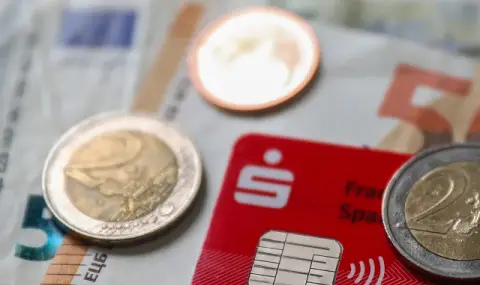Social networks claim that the EU wants to expropriate the savings of people in Europe and invest the money in armaments. Is that true? Fact check.
In recent days, two initiatives from Brussels have caused particular excitement and sparked heated discussions on social networks. The European Commission (EC) has presented its White Paper on European Defence "ReArm Europe/Readiness 2030" - an initiative that aims to allow member states to invest more and faster in their defence. The EC also presented its strategy for a Savings and Investment Union, which aims to create more incentives for investment - for example, to create pan-European funds that would make it easier for people to invest their money in different areas such as the environment, digital development or defense.
Claim: Increasingly, social media is claiming that the new EU plans are a threat to the personal savings of European citizens. "The EC plans to take 10 trillion euros of citizens' savings to use for the defense of the EU. This is economic suicide. Withdraw your money from European banks. Otherwise, they will take it from you", wrote a user on X. Similar posts are also shared by other people. "Democracy is a thing of the past - now Brussels and Ursula von der Leyen will determine what happens to our money. Forced investment for war?, says threatening videos circulating on YouTube and Telegram.
Fact check: False
Does the EU have direct access to people's savings?
The Savings and Investment Union is a new version of the long-discussed plan for a Capital Markets Union. The idea is to harmonize laws and reduce obstacles, creating common European investment opportunities, explains Florian Haider of the Leibniz Institute for Financial Market Research. According to ING Bank economist Carsten Brzeski, there is a huge need for private investment in Europe.
There are about ten trillion euros in bank accounts in Europe, according to EU calculations. Brussels wants to motivate citizens to invest them in capital markets, for example, to secure their retirement. At the same time, small and medium-sized businesses should have easier access to capital at the European level. However, these proposals are perceived by some users on social media as an attempt to take away their money.
The truth is, your money is yours. "The only way for the state to have access to citizens' money is through taxes", explains Florian Haider. According to him, the EU initiative aims to have more transparency and help Europeans better understand the financial markets. "You don't know what the banks do with the money in your savings accounts. For example, you may not know where the bank invests your money. If you invest in capital markets yourself, you can choose where your money goes. The EU wants to give people more freedom, it is the exact opposite of expropriating money."
Can the EU invest private savings in defense
Another accusation is that the EU will invest people's savings in armaments without their knowledge. Publications in X refer to material from the Russian news agency TASS and share excerpts from it on social networks. The original publication from March 5
2025 says at the very beginning: "The European Commission estimates the total volume of unused savings of EU citizens at 10 trillion euros and wants to find ways to mobilize this money to finance its plans for the militarization of Europe and support the European military-industrial complex."
"This is a clear example of a Russian disinformation operation. EU citizens have complete freedom to invest their money as they see fit. They will always have full control over whether they want to keep their money or invest it," EU spokesman Olof Gill told DW. In short: anyone can invest in armaments if they want. "But no one can force people to do something with their money that they don't want to," adds economist Carsten Brzeski.
Fear-mongering with threatening scenarios
Some of the publications are urging people to withdraw their money from financial institutions in the EU. Florian Haider believes this is a deliberate disinformation campaign. "Behind these lies lies the desire to weaken Europe. If the money is not in Europe, it will help other countries. Of course, one can invest elsewhere. The advantages of the eurozone are that it is legally secured, there are deposit guarantees and there is no risk of currency conversion."
According to EU law, there is no access to private savings accounts. On the contrary, there are several regulations within the European Union that aim to protect people's savings. One such example is the deposit guarantee scheme, through which investors are compensated if a bank goes bankrupt.
